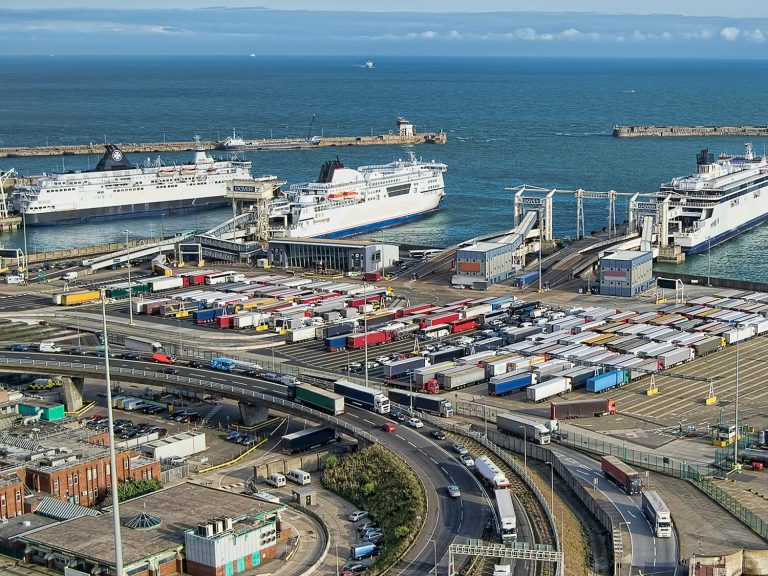
Date:
New EU border controls threaten cross-channel delays
Almost 60% of all UK-EU trade passes through the UK short straits and ensuring their operational stability is key to facilitating and maximising international trade, but EU border controls due to take effect next May threaten to impact their resilience and sustainability.
The European Entry/Exit System (EES) will replace wet stamping of passports and require Britons to register biometrics including facial and fingerprint scans on their first border crossing into the EU, and then be scanned on subsequent crossings.
Britons travelling to the European continent have been warned to expect huge delays at ferry ports and the Channel Tunnel from May 2023, with the launch of the scheme expected to be chaotic.
The technology the EU is implementing to support the EES rollout was designed for airports and railway stations, where passengers approach individually in queues and under French laws, the information must be gathered in the presence of a border official and cannot be subcontracted.
The head of EU exit for the Dover Harbour Board, told MPs last year that there is no such thing as an eGate for a car, and there is no such thing as an eGate process for people travelling as a group. They’re all one-at-a-time processes, which means that at British exit ports, EES would require car passengers and commercial vehicle drivers to exit their vehicles at French border controls to undertake passport checks; in addition to compromising the safety of drivers, it would also delay just-in-time supply chains.
The port of Dover has voiced fears – that are supported by Logistics UK and other freight trade associations – that EES will not work in a ferry port where there could be hundreds of cars waiting to get onto ferries and with up to 10,000 lorries crossing every day, any disruption to processing cars for departure, could lead to prolonged freight delays.
Experts suggest that EES could extend passenger processing times, currently averaging 90 seconds per car by a few minutes, which Imperial College forecasts would trigger 29-mile queues.
The Port of Dover, ferry operators, Logistics UK and the British Ports Association (BPA) are lobbying the government to address the looming threats to traffic fluidity from the EU Entry Exit System (EES) and support new border control infrastructure.
Metro are at the forefront of UK/EU customs brokerage solutions, with our automated CuDoS declaration platform and a dedicated team of customs experts, reacting swiftly to any changes in the UK’s trading relationship with the EU.
To learn how we can simplify and automate customs declarations for your businesses, please EMAIL Elliot Carlile to review the options.
